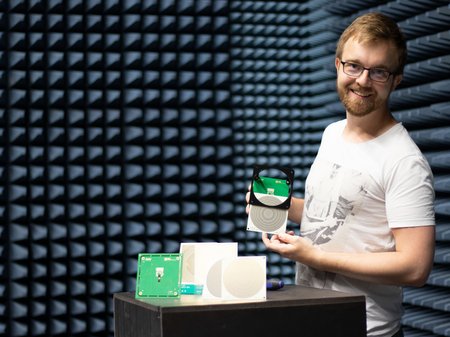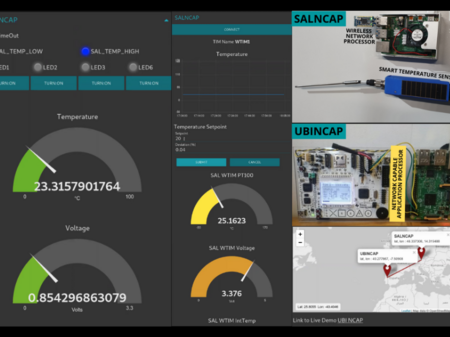Classic role models and stereotypes often still push young women into female associated occupations. The proportion of women in technical and scientific studies and professions is increasing, but only slowly. In addition to promising job and career opportunities, female graduates of technical and scientific studies can also expect an above-average income. Often, it is the perceived fear of technical or mathematical tasks, or the lack of self-confidence in pursuing a technical or scientific education, which prevents girls from taking this still unconventional path. However, the fact that this shyness is completely unfounded and that girls can be just as equal in these fields is something that the initiative "T³UG - Teens Meet Technology" is trying to convey.
The aim of the initiative is to encourage schoolgirls in particular to pursue technical or scientific studies. The organization is carried out by the "Office for Equality and the Advancement of Women" at Graz University of Technology and offers the opportunity to get to know the world of technology and natural sciences better within the framework of various programs. Special emphasis is placed on direct contact with female graduates or women who are professionally active in these fields.
We are therefore pleased that we at SAL may also be part of this initiative. The three students were introduced to various branches of activity directly by our employees. Alexander Connaughton guided the group through the building and gave them a first overview of the research work at SAL. Since we at SAL also do research with and on artificial intelligence, Jennifer Simonjan, Research Unit Collaborative Perception & Decision Making, first explained to the participants what artificial intelligence is all about and why it is so important nowadays. She also talked about her personal career as a woman in technology and about the general job description. Our intern Zouhaira Gasmi introduced the students to the world of programming and software development. Silvia Crnogaj, Photonic Systems, presented their idea for the development of a colorimetric gas sensor, which could be used both indoors and outdoors and, for example, simply serve as an accessory to the smartphone. Artificial intelligence could therefore be used to examine the ambient air for its gas composition as well as to determine gas concentrations, whether while jogging, in the office or at home. Monika Stipsitz, Architectures & Topologies, also illustrated her daily work at SAL on the internal project FEMApp. Her team is investigating how methods from machine learning can be used to quickly approximate the results of physical simulations. Currently, they are focusing on thermal simulations. The Power Lab was presented by Franz Vollmaier. Isabella Preuer shared her experiences as Communications & PR manager in a technology company and Ricarda Kappel talked about her exciting work as Junior Legal Counsel. In addition, other researchers presented their work.
We hope that we have given the young, perhaps soon to be junior researchers, a good insight into the exciting world of research.
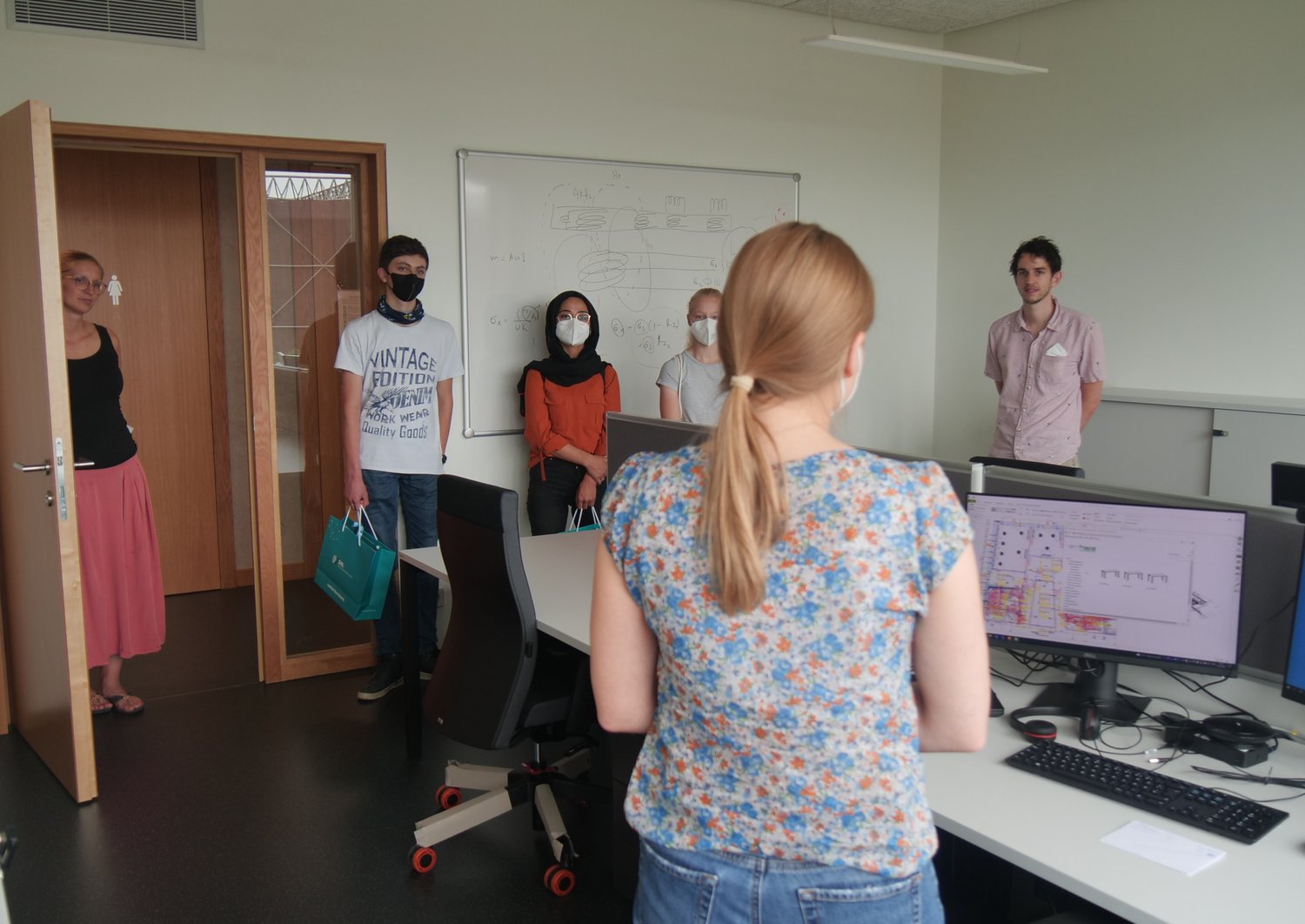
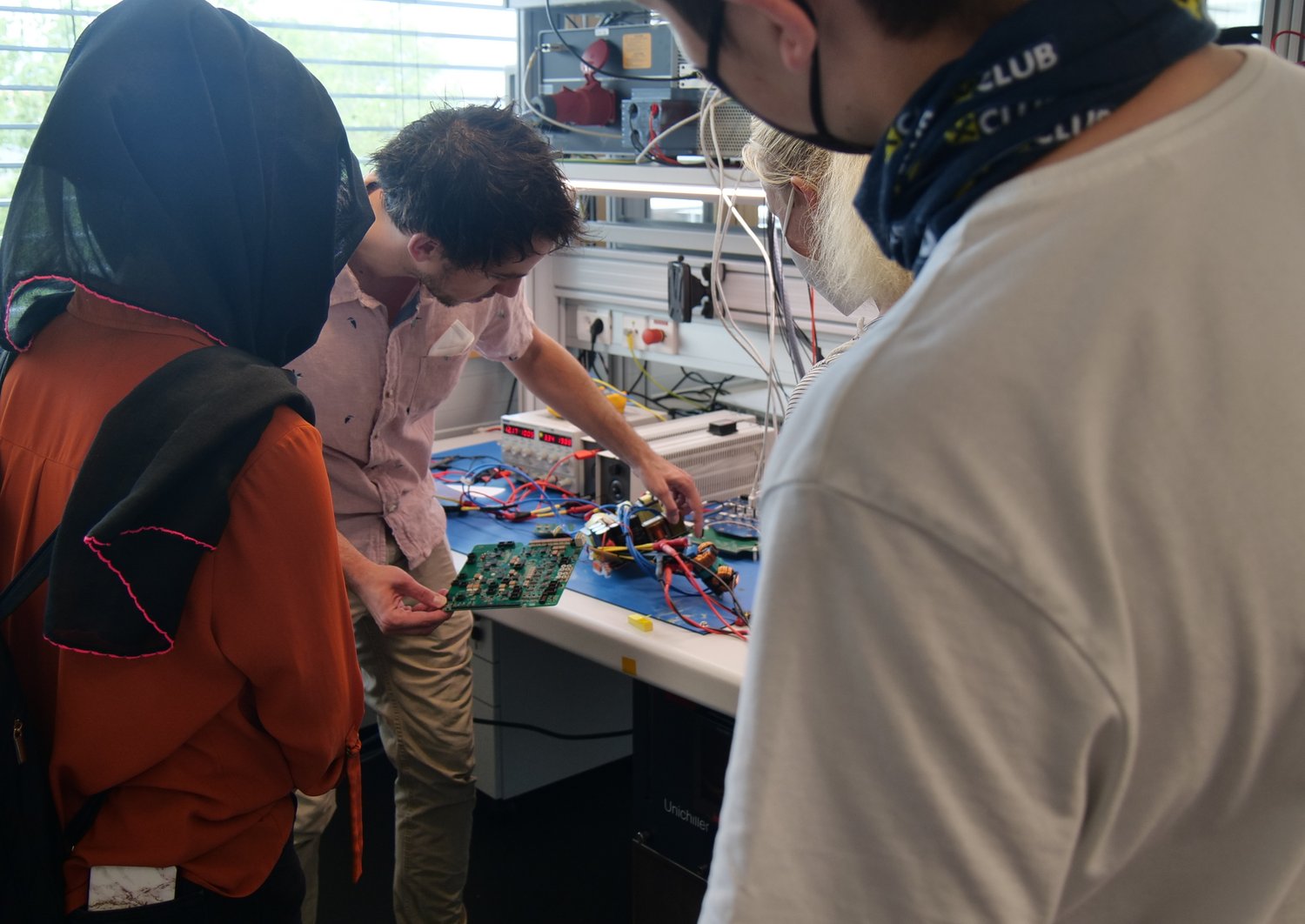
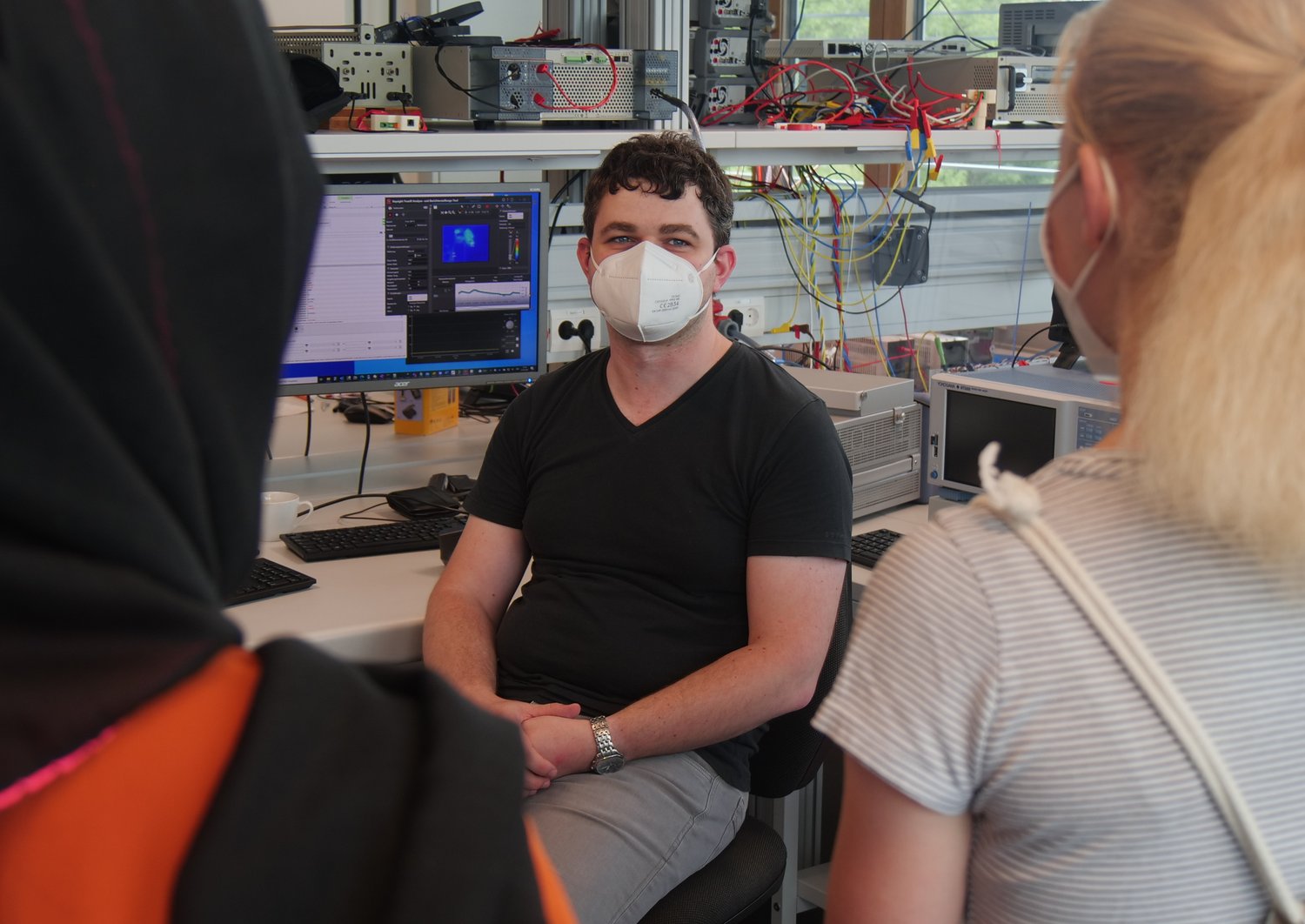
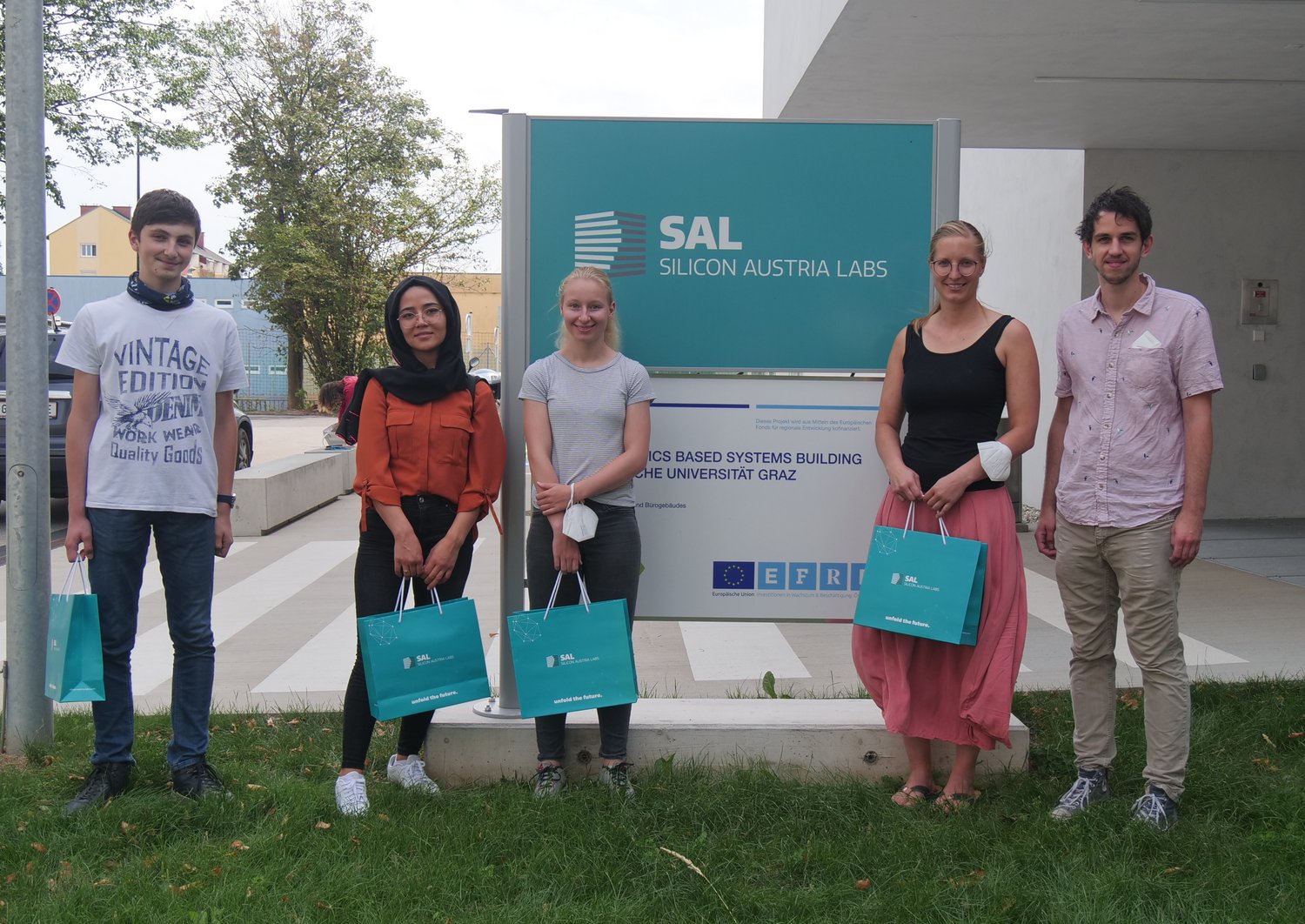
![[Translate to English (US):] turquoise background with SAL logo and the text "International Women's Day, 08 March". In the bottom left corner is a drawing of women of different ages and skin colors.](/fileadmin/_processed_/e/6/csm_4_Kopie_413e8d6131.png)

